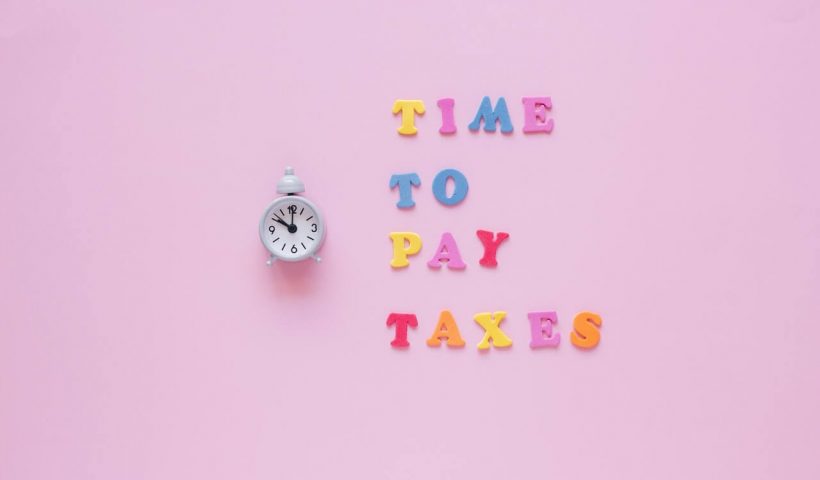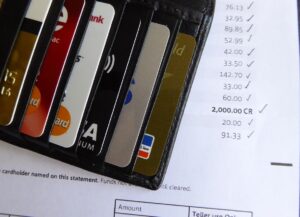When Do You Have To Register For VAT?

Value Added Tax (VAT) is a tax on goods and services in the UK. It’s a type of indirect tax that is charged on most goods and services.
It can be pretty challenging to stay compliant with all the rules and regulations that come with VAT and to make sure you also understand new rules under the Making Tax Digital system. That’s why our accountants have put together this article to give you some pointers and to help you stay on the right path when it comes to registering for VAT.
Whether you’re just starting out or have been running your own company for years, our accountants and bookkeepers at Joanna Bookkeeping can help with everything from VAT registration to managing your VAT returns, saving you time so you can focus on growing your business! Get in touch with our Oxford-based accountants today. And if you’re not in the Oxford area, no problem! We’re a fully digital accounting practice and we offer our accounting services even if you’re based outside Oxford!
Who needs to register for VAT and When?
The threshold for registering for VAT is £90,000. If your taxable turnover is below this figure, you do not need to register for VAT. This threshold applies to all businesses regardless of their business structure. So, you can be a sole trader, in a partnership, or have a limited company, you have to watch your taxable threshold.
And here comes a question of what a taxable threshold is at all. Should you simply look at your total income? Well, not necessarily. Taxable turnover means any type of supply that is subject to VAT. So, imagine you are already VAT registered, which of your services or products would be vatable according to HMRC? And this also includes things that are zero-rated as they are still vatable, but the VAT rate is simply 0%.
You also need to register for VAT regardless of whether your taxable turnover is over the threshold if all of the following are true:
- You or your business are based outside the UK
- You sell goods or provide services to the UK
If you register late, it won’t unfortunately save you from paying VAT on all the eligible sales. You will have to pay VAT on any sales you’ve made since the date you should have registered. This may mean losing money, so make sure you monitor your turnover regularly. More about practicalities of this later in the article.
When HMRC registers you for VAT, you’ll have to pay it from the date they register you, and you must register within 30 days of the end of the month you went over the VAT threshold. Your date of registration is the first day of the second month.
For example, between 10th September 2023 and 9th September 2024, your VAT taxable turnover is £110,000, and it’s the first time you’ve gone over the VAT threshold, you must register for VAT by 30th October 2024. Your effective date of registration is 1 November 2024.
It’s important to know when you have to register because if you don’t, you may face a penalty. The good news is that it’s easy to register and if there are any problems, HMRC will let you know.
Making Tax Digital Compliant
Need Help with Your VAT returns
We can definitely help. Check out our other accounting services as well.
Tests to assess when you have to register for VAT
There are three tests to assess when you need to register for VAT:
➡️The last 12 months over the threshold – If your annual turnover for all relevant businesses is more than £90,000 in each of the last 12 months, then you’ll need to register for VAT. This applies even if your business has experienced a loss during that period. You then need to keep a 12-month rolling total, this means the total amount for the current month and the 11 months that precede your VAT taxable turnover.
➡️The next 30 days – If your taxable turnover is expected to go above the threshold it’s likely that you will have to register for VAT.
➡️30-day period alone – If at the start of any 30-day period you believe that your sales will hit £90k within a 30-day period (from when they started), this may trigger an obligation to register.
These tests have to be done regularly and the 12-monthly test should be on a rolling basis, so you should monitor things monthly. To be able to do this, it’s crucial to have all bookkeeping up to date. You can do bookkeeping yourself if you have time and knowledge about it. Our tips about bookkeeping can help you. Or you can outsource it to a professional bookkeeper like Joanna Bookkeeping.
But let’s look at an example. Let’s say in August 2024, you would look at the whole taxable income from the 12 previous months combined, so 12 months up to the end of July 2024. In September, you would look at 12 previous months in total covering the period up to August and so on. If you’re above the VAT threshold, then you have to register.
It’s also important to mention that when assessing whether you should register for VAT or not, your business’s financial year is irrelevant. Just follow the rules for the tests explained above.
Exception from VAT registration
In some situations, you may be exempt from registering your business for VAT even if your taxable turnover goes over the registration threshold. However, you must notify HMRC if your business is temporarily above the VAT threshold, and they will make a decision on whether you’re exempt or not.
Can you de-register for VAT?
If and when your turnover drops below £88,000, you can inform HMRC and ask them to cancel your registration providing it’s not only a temporary reduction. Reasons for cancelling your VAT registration are:
- You don't trade anymore or you don't make vatable supplies
- You join a VAT group
You can cancel your VAT registration online via the .GOV website, or by filling in and sending a VAT7 form to cancel your VAT registration by post.
If you have any questions about how to register for VAT, or if you want someone with experience in this area to handle everything for you, book a call with one of our Oxford-based accountants. They will be able to guide you through the steps of how to register for VAT and advise you on all aspects of running your business, including choosing the right legal structure for your company, understanding how tax works, and making sure that everything is done correctly from day one onwards.

Your Accountant in Oxford
Oxford Office
Joanna Bookkeeping
The Wheelhouse Angel Court
First Floor, Angel Court
81 St Clements St
Oxford
OX4 1AW
Connect
joanna@joannabookkeeping.co.uk
01865 591952





